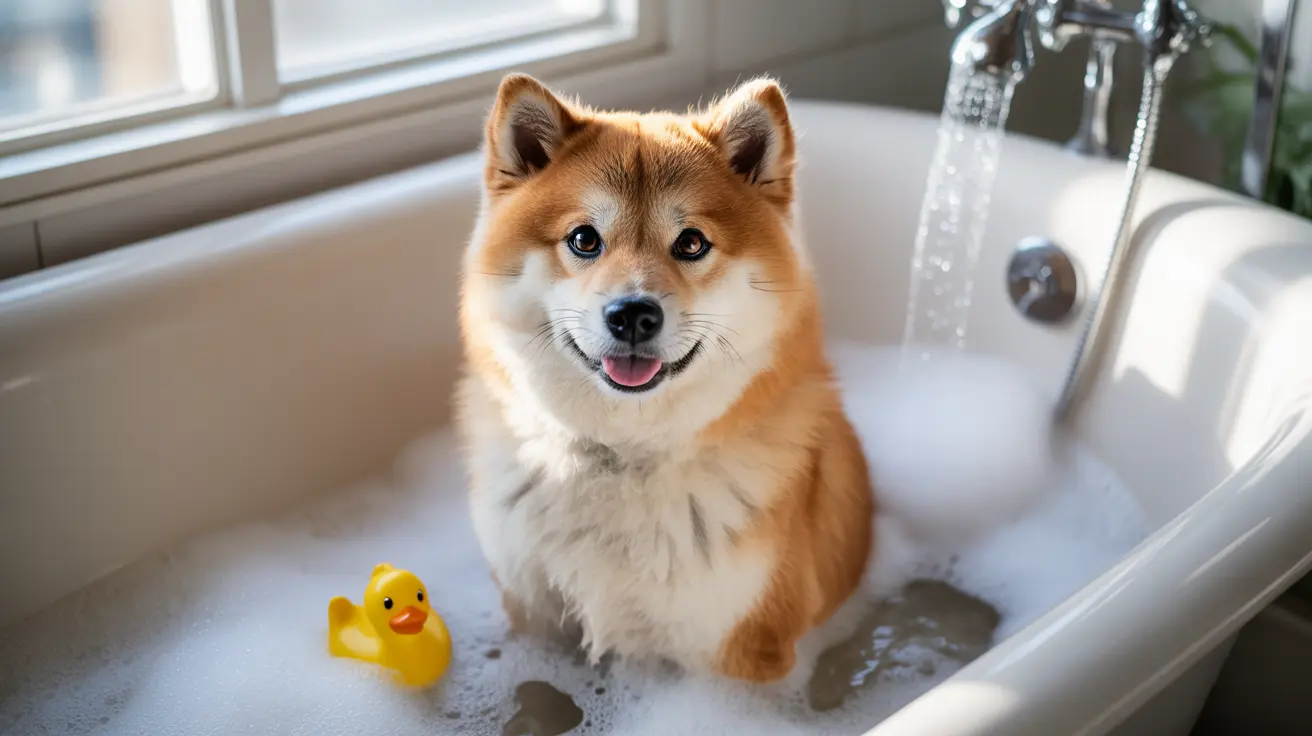Many pet owners wonder about using human products on their furry friends, especially when it comes to bathing. While Dove soap is known for its gentle formula and moisturizing properties for humans, using it on dogs can potentially cause more harm than good.
In this comprehensive guide, we'll explore why Dove soap isn't suitable for dogs, what risks it poses, and what alternatives you should consider for your canine companion's bathing needs.
Understanding Your Dog's Unique Skin Biology
Dogs have fundamentally different skin characteristics compared to humans. Their skin maintains a delicate pH balance between 6.2 and 7.4, while human skin is more acidic, typically ranging from 5.5 to 5.6. This difference is crucial when choosing appropriate cleaning products for your pet.
Additionally, dogs have a thinner skin layer protected by what's called the "acid mantle" - a protective barrier that helps prevent bacterial infections and maintains skin health. Using products formulated for human skin can disrupt this vital protective layer.
The Risks of Using Human Soap on Dogs
While Dove soap isn't toxic to dogs, regular use can lead to several skin-related issues:
- Disruption of natural skin pH balance
- Dryness and flaking
- Increased skin sensitivity
- Bacterial or fungal infections
- Excessive itching and scratching
- Loss of natural protective oils
Why Even "Gentle" Human Soaps Are Problematic
Despite Dove's reputation as a mild soap, its formulation is specifically designed for human skin pH levels. Even gentle human products can cause issues for dogs because:
- The pH balance is wrong for canine skin
- They contain fragrances that may irritate dogs
- The surfactants can be too harsh for dog skin
- They may strip essential natural oils
Safe Alternatives for Dog Bathing
Instead of using Dove soap, consider these veterinarian-recommended options:
- Dog-specific shampoos formulated for the correct pH
- Hypoallergenic pet shampoos for sensitive skin
- Medicated shampoos (if prescribed by your vet)
- Oatmeal-based dog shampoos for dry skin
Emergency Bathing Solutions
If you find yourself without dog shampoo, here are temporary solutions that are safer than Dove soap:
- Plain warm water rinse
- Diluted dog-safe dish soap (in extreme cases)
- Veterinarian-approved waterless shampoo
- Professional grooming services
Frequently Asked Questions
Can I use Dove soap on my dog in an emergency?
While a one-time use of highly diluted Dove soap won't likely cause immediate harm, it's not recommended. Even in emergencies, it's better to use plain warm water or consult a vet for alternatives.
Why is Dove soap not suitable for dogs despite being gentle on human skin?
Dove soap is formulated specifically for human skin pH levels, which are more acidic than dog skin. Even gentle human soaps can disrupt your dog's natural skin barrier and protective oils.
How does the pH of dog skin differ from human skin, and why is this important for soap choice?
Dog skin has a pH of 6.2-7.4, while human skin is more acidic at 5.5-5.6. This difference means products formulated for humans can disrupt your dog's skin balance, leading to irritation and potential health issues.
What are the risks of using human soap on dogs, and how can I prevent skin irritation?
Risks include pH disruption, dryness, irritation, and increased susceptibility to infections. Prevent issues by using only dog-specific shampoos and avoiding human products entirely.
What are some safe alternatives to use if I run out of dog shampoo?
Safe alternatives include warm water rinses, pet-specific waterless shampoos, or a visit to a professional groomer. In extreme cases, a very diluted dog-safe dish soap can be used once, followed by thorough rinsing.
Conclusion
While it might be tempting to reach for Dove soap when bathing your dog, it's crucial to use products specifically formulated for canine skin. Invest in quality dog shampoo to maintain your pet's skin health and prevent potential complications. When in doubt, always consult with your veterinarian about the best bathing products for your specific dog's needs.






